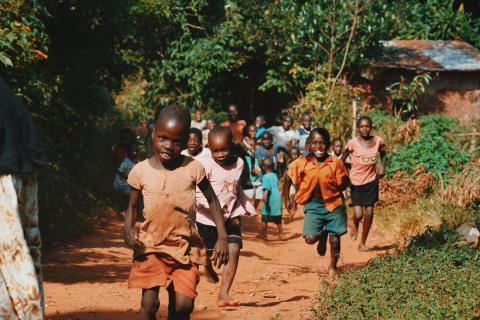
Photo by Seth Doyle
The World Health Association cites Tuberculosis (TB) as one of the top 10 causes of death globally and the leading cause from a single infectious agent (above HIV/AIDS) (in 2018 alone, 1.5 million people died from TB).
The majority of infected patients suffer from pulmonary TB, while around 20% of cases are atypical or extra-pulmonary TB (many of which are paediatric). Zoonotic TB, associated with Mycobacterium bovis, is believed to cause higher rates of atypical TB due to its route of transmission, mainly through ingestion of infected unpasteurised milk. The aim of the research was to explore the impact of atypical TB in children in Ethiopia, in particular zoonotic TB, as the national dairy herd is highly infected by M. bovis and consumption of raw milk among children is very common.
A network of stakeholders was brought together with a broad interest in the diagnosis, treatment and management of TB in children in Ethiopia, where rates are notably high at the global scale. To improve knowledge and awareness on atypical childhood TB in the country, a workshop was organised for clinicians, nurses, researchers and participants from the National TB control programme, all working on paediatric TB and nutrition.
Based on the successful recruitment of an interested network of stakeholder clinicians and laboratory personnel, stool samples were received for culturing and testing using a polymerase chain reaction (PCR) based approach (many cases of atypical paediatric TB in Ethiopia may be enteric (relating to the intestines) and under-diagnosed). However, culturing of mycobacteria from faeces samples is technically challenging due to massive contamination with faecal bacteria. Out of over 400 stool samples from paediatric cases, no TB species was cultured from any sample and the PCR based approach did not identify any M. bovis.
There was direct and positive impact of this work including raising awareness among clinicians, researchers and National TB Programme Personnel in Ethiopia on a number of topics, including global and national childhood TB, clinical forms of paediatric TB, challenges posed by diagnosis of atypical paediatric TB and the potential role of Mycobacterium bovis in causing atypical childhood TB.
As a result of the workshop, there is now far greater understanding of the different available diagnostic tools for atypical childhood TB, as well as an awareness of the importance of atypical TB in children, ensuring that the disease is clearly on the list of clinical differential diagnoses.
The work has also been invaluable in identifying more research questions on childhood TB , as well as being useful in strengthening the links between the research institute and the hospitals in the study sites (with excellent potential for greater clinical research activity).
In order to consolidate the impact, additional samples are being collected from suspected cases of paediatric TB from hospitals at existing study sites and there is interest in expanding this work to include extra study sites – particularly in more remote pastoral areas where raw milk consumption is a common practice and therefore likely to increase the risk of zoonotic atypical TB. Further, the work carried out underpinned our successful application for further funding to support these investigations, and the continued development of a PCR based approach to diagnosis.

